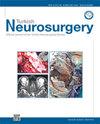Endoscopic Third Ventriculostomy vs. Ventriculoperitoneal Shunt for Obstructive Hydrocephalus: A Meta-Analysis of Randomized Controlled Trials.
IF 0.9
4区 医学
Q4 CLINICAL NEUROLOGY
引用次数: 0
Abstract
OBJECTIVE With neurosurgeons\' mastery, endoscopic third ventriculostomy (ETV) and extracranial shunting, two surgical options for patients with noncommunicating hydrocephalus, have substantially enhanced. However, which method of these 2 surgical methods could be more beneficial and safe for obstructive hydrocephalus is controversy. Herein, in patients with noncommunicating hydrocephalus, we did a meta-analysis to investigate the safety and efficacy of the two surgical therapies. METHODS Randomized controlled trials (RCTs) of ETV and VPS for obstructive hydrocephalus were searched systematically by using MEDLINE, EMBASE, and the Cochrane Controlled Trials Register. Reference lists of retrieving studies were also perused. Infection following surgery, postoperative CSF leakage, mortality and success following surgery were the main outcomes. RESULTS Six RCTs evaluating ETV and VPS were observed from among 841 studies evaluated. Especially in comparison to VPS, ETV was accompanied with decreased incidences of infection following surgery (risk ratio [RR] 0.19, 95% confidence interval [CI]: 0.08-0.43, P = 0.0001); postoperative cerebrospinal fluid leakage (RR 5.10, 95% CI: 1.19-21.89, P = 0.03) compared with ventriculoperitoneal shunt; VPS had no incidence on mortality rates as compared to ETV (RR 0.64, 95% CI: 0.26-1.56, P = 0.32). CONCLUSIONS In comparison to ETV, VPS had no significant effect on the incidence rate of mortality, but ETV has more benefits in terms of major complications, such as infection following surgery, and postoperative CSF leakage, than VPS for patients with noncommunicating hydrocephalus, according to the above meta-analysis.内镜下第三脑室切开术与脑室腹膜分流术治疗梗阻性脑积水:随机对照试验的荟萃分析。
目的:对内镜下第三脑室造瘘术(ETV)和颅外分流治疗梗阻性脑积水的安全性和有效性进行荟萃分析。材料和方法:采用MEDLINE、EMBASE和Cochrane对照试验注册系统分析ETV和脑室-腹腔分流术(VPS)治疗梗阻性脑积水的随机对照试验(RCTs)。检索到的研究的参考文献列表也被仔细阅读。术后感染、术后脑脊液漏、死亡率和手术成功率是分析的主要结果。结果:在841项选定的研究中,6项随机对照试验评估了ETV和VPS。与VPS相比,ETV具有较低的术后感染发生率(风险比[RR]:0.19,95%置信区间[CI]:0.08-0.43,p=0.001)、术后脑脊液渗漏(RR:5.10,95%CI:1.19-21.89,p=0.003)VPS。与ETV相比,VPS无死亡率(RR 0.64,95%CI:0.26-1.56,p=0.32)。
本文章由计算机程序翻译,如有差异,请以英文原文为准。
求助全文
约1分钟内获得全文
求助全文
来源期刊

Turkish neurosurgery
医学-临床神经学
CiteScore
1.50
自引率
12.50%
发文量
126
审稿时长
2 months
期刊介绍:
Turkish Neurosurgery is a peer-reviewed, multidisciplinary, open access and totally free journal directed at an audience of neurosurgery physicians and scientists. The official language of the journal is English. The journal publishes original articles in the form of clinical and basic research. Turkish Neurosurgery will only publish studies that have institutional review board (IRB) approval and have strictly observed an acceptable follow-up period. With the exception of reference presentation, Turkish Neurosurgery requires that all manuscripts be prepared in accordance with the Uniform Requirements for Manuscripts Submitted to Biomedical Journals.
 求助内容:
求助内容: 应助结果提醒方式:
应助结果提醒方式:


